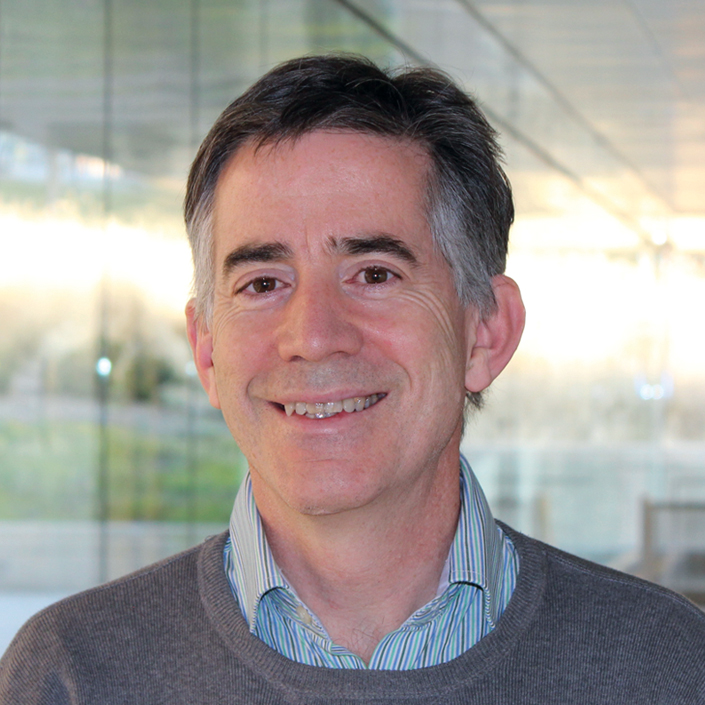Distinguished Lecture
From analog to digital and back again
This event is free and open to the publicAdd to Google Calendar

Reception will follow ceremony and talk in Masco Commons, third floor, Lurie Engineering Center.
Modern life depends on digital devices, but our world is analog. Without conversion between analog and digital, there would be no communication, sensing, and computing. Defying expectations, analog to digital converter circuits (ADCs) improved in energy efficiency by more than three orders of magnitude over 20 years. These improvements paved the way for smart prostheses for Parkinson’s disease, high-bandwidth wireless connectivity, digital radar, and accurate speech recognition in noisy environments. Recently analog circuits aided by analog to digital conversion are upending computing. Eighty years after the dawn of digital computing, analog computing may power the explosive growth in artificial intelligence.
Bio
Michael P. Flynn is one of the world’s premier scholars in the area of analog and mixed-signal integrated circuits and systems, analog-to-digital conversion (ADC), and other interface circuits – from high-speed serial transceivers to radio frequency transceivers and sensors. His pioneering research has improved the performance and energy efficiency of analog-digital interfaces and transformed the field.
He has also made major contributions to the department’s graduate education while serving as the Associate Chair for Graduate Affairs. Among those contributions were a number of innovative strategies that helped dramatically increase the number of domestic and underrepresented student applicants to ECE.
Prof. Flynn has received numerous awards, including the University of Michigan Faculty Recognition Award, the College of Engineering John F. Ullrich Education Excellence Award and Ted Kennedy Family Team Excellence Award, and the department’s Outstanding Achievement Award. He has also received a Guggenheim Foundation Fellowship and an NSF CAREER Award. He is a Fellow of IEEE, he served as the editor-in-chief of the IEEE Journal of Solid-State Circuits, and he is a former Distinguished Lecturer in the IEEE Solid-State Circuits Society. In addition, he has published two book chapters and more than 100 journal and conference papers.
Prof. Flynn earned a PhD in Electrical Engineering in 1995 from Carnegie Mellon University. He worked at Texas Instruments and at Ireland’s Parthus Technologies and the National University of Ireland prior to joining the engineering faculty at U-M in 2001.
About Fawwaz T. Ulaby
Fawwaz T. Ulaby is an internationally renowned researcher in the fields of terahertz technology and microwave remote sensing. He designed the first radar to fly in space, and served as the founding Director of the NASA-funded Center for Space Terahertz Technology, as well as other large, interdisciplinary NASA projects aimed at the development of high-resolution satellite radar sensors for mapping earth’s terrestrial environment. These remote sensing systems now fly aboard satellites operated by NASA as well as the European, Canadian, and Japanese space agencies.
Ulaby’s dedication to the education of students is legendary at Michigan, and led to him receiving the HKN Teacher of the Year award three times. He has published 16 books, including the highly successful Fundamentals of Applied Electromagnetics, and initiated the Free Electrical Engineering Textbook Initiative, which already has saved an estimated $10M in textbook costs to students.
His remarkable contributions to the field of engineering education and research have been recognized with numerous honors, including election to the National Academy of Engineering, as well as the IEEE Edison Medal, IEEE Electromagnetics Award, the William T. Pecora Award (for shaping the direction of the space program in microwave remote sensing), the James H. Mulligan, Jr. Education Medal, the IEEE GRSS Education Award, the HKN C. Holmes MacDonald Outstanding Teaching Award, and many more.
Ulaby retired from the University of Michigan in 2021 as the Emmett Leith Distinguished University Professor of EECS, Chen-To Tai Professor of Engineering, and Arthur F. Thurnau Professor.
 MENU
MENU 
